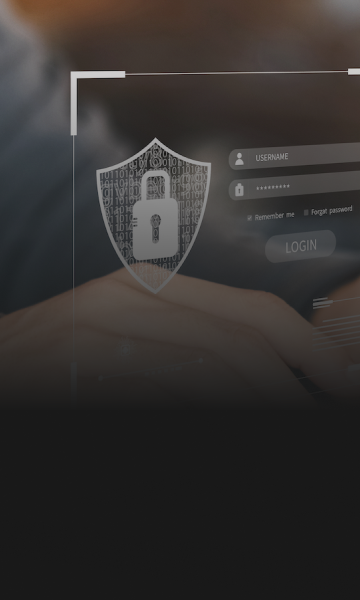Try Cyberior Digital Identity Theft Protection Now
Cyberior offers cyber fraud and digital identity theft protection solutions to protect the Digital You at every step.


What are the most common types of identity theft?
It is a harsh reality that anyone can fall victim to identity theft. And hence it is equally important to understand different types of identity theft and how to protect yourself.
Financial Theft:
Financial theft is the type of identity theft that people worry about most. Financial identity theft may include,
- Compromising your credit card number
- A loan taken out in your name
- Opening of a credit card to make online purchases using your identity
These actions can cause bad credit for the victim, resulting in higher interest rates or denial of loans. Depending on the specific action or amount of money involved, it can be time-intensive to re-mediate the issue.
How to protect?
The easiest way to protect yourself from financial identity theft is to properly maintain and dispose off any documents with personal information on them. Similarly, make sure you avoid sharing your personal and financial information over the phone in public. You should check your credit reports and scores as frequently as possible and review them for potentially fraudulent accounts.
Tax-Related Identity Theft:
Tax-related identity theft is the largest and fastest growing type of identity theft globally. It occurs when a criminal uses your PAN number and other personal and financial data to file a tax return claiming a fraudulent refund. These types of cases can be highly complex and cause a major delay in your refund.
How to protect?
Install security software on your devices and update them automatically to have the latest versions to patch security flaws and keep hackers out. Avoid “free” security scans or pop-up advertisements for security software. Beware of a phishing scam. Do not click on any suspicious link or do not reply to any message asking for your financial details.
Criminal Theft:
Criminal theft is when your identity is stolen and used to commit further crimes. If this happens, you could have an unknown criminal record sneak up on you. You may not realize your identity has been compromised by criminal theft until a background check is run when you apply for a job, a passport, etc.
How to protect?
Manage your paper documents properly and be selective with who you share personal information. When it is time to dispose off your confidential documents, you should invest in a cross-cut shredder to thoroughly eliminate the possibility of someone dumpster diving and walking away with important information. Finally, when talking to officials and professionals, especially over the phone, only provide information on a need-to-know basis.
Medical Insurance Theft:
Medical insurance theft is a dangerous crime that is on the rise. It occurs when a criminal uses your name to obtain medical treatment. The illness or condition the criminal claimed would then appear in your medical records. It may result in increased health insurance premiums or life insurance ineligibility.
How to protect?
Regularly check the statements from your insurance company and report any services that you don’t remember receiving. Also make sure you safeguard your medical and insurance information, by storing medical paperwork in a safe place in your home and being wary of “free” medical services, as they may be identity thieves posing as doctors or other medical professionals hoping to steal your information.
Synthetic Identity Theft:
Synthetic identity theft is one of the most sophisticated kinds of identity fraud. Synthetic identity theft is a type of fraud in which a criminal combines real (usually stolen) and fake information to create a new identity, which is used to open fraudulent accounts and make fraudulent purchases. Synthetic identity theft allows the criminal to steal money from any credit card companies or lenders who extend credit based on the fake identity.
How to protect?
Constantly keeping a track on your credit record is an important step to ensuring that there are no discrepancies on your credit report. Review your annual statements. Be on the lookout for mail sent to your address in someone else’s name. Beware of phishing attempts – by phone, email, or text – to trick you into sharing your personal information.
Why do you need Identity theft protection?
Identity theft not only affects your financial stability, but it also impacts your family well-being and causes mental distress. Identity theft could potentially lead to headaches, a drop in your credit score, loss of money, and more. While some situations can be fixed in just a day, some identity theft situations can linger on for years and years or can leave a long-lasting impact. Since this is one of the most difficult type of a fraud to prevent, it is important for individuals to access the best identity theft protection services available to them.
